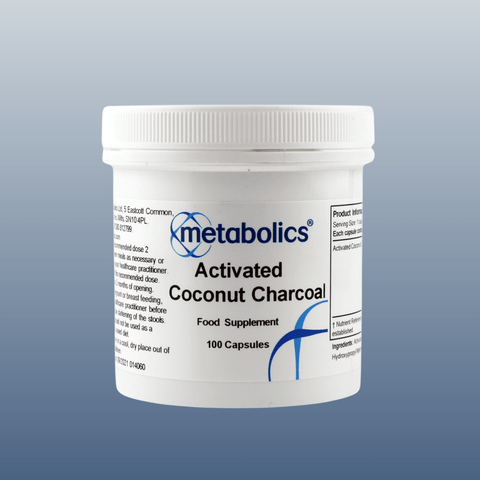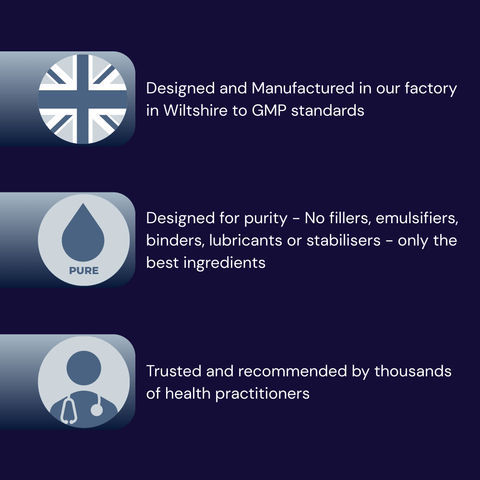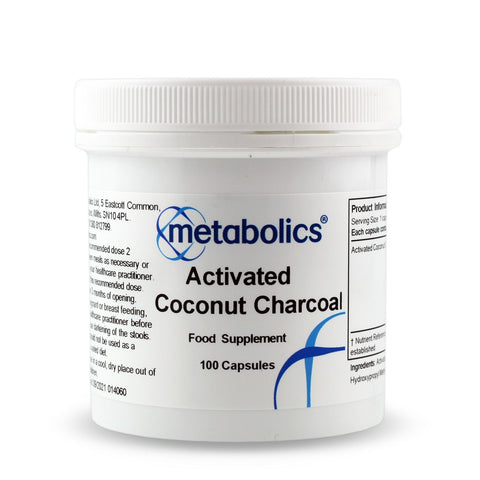Suitable For
Charcoal can be made from many different materials including wood, moss, bone and coconut.
In fact, charcoal filters have been used in water filters for years to filter particulate from water. Activated coconut charcoal is an activated carbon from coconut shells. The coconut shell is crushed and carbonized at 300-400 degrees and then heated to a further 900-1000 degrees celsius. This process alters the structure of the charcoal producing a lattice or honeycomb structure with a huge surface area. 1gram of activated charcoal may have an area of 1000 meters square. Each particle size is 200microns, lined with millions of tiny absorptive pores. Activated charcoal works by a process of adsorption, the chemical reaction where elements bind to its surface. It has a strong negative charge attracting positively charged mercury, BPA, aflotoxin and other endotoxins from food poisoning related bacteria. Activated coconut charcoal can trap 300x its own weight in toxins including intestinal gas. It is steam washed and then water washed and absolutely no solvents, chemicals or additives are used in its manufacture. It may also change colour slightly from season to season Activated coconut charcoal may also bind to drugs so should be taken away from medications and taken with plenty of water to avoid constipation. It can also bind to bile, enabling the excretion of fat based toxins before they are reabsorbed People have used activated charcoal for teeth whitening, adsorbing plaque that may stain teeth Reference: Am J Gastroenterol, 1986 Jul;81(7):532-5 Efficacy of activated charcoal in reducing intestinal gas: a double-blind clinical trial. Jain NK, PatelVP, Pitchumoni CS
Supplement Facts
Each capsule contains
%NRV*
Activated Coconut Charcoal
350 mg
†
† Nutrient Reference Value (NRV*) not established
Ingredients
Activated Coconut Charcoal, Hydroxypropyl Methylcellulose (capsule).
Directions / Dosage
 Capsules
Capsules
Warning
Storage
Product Type






